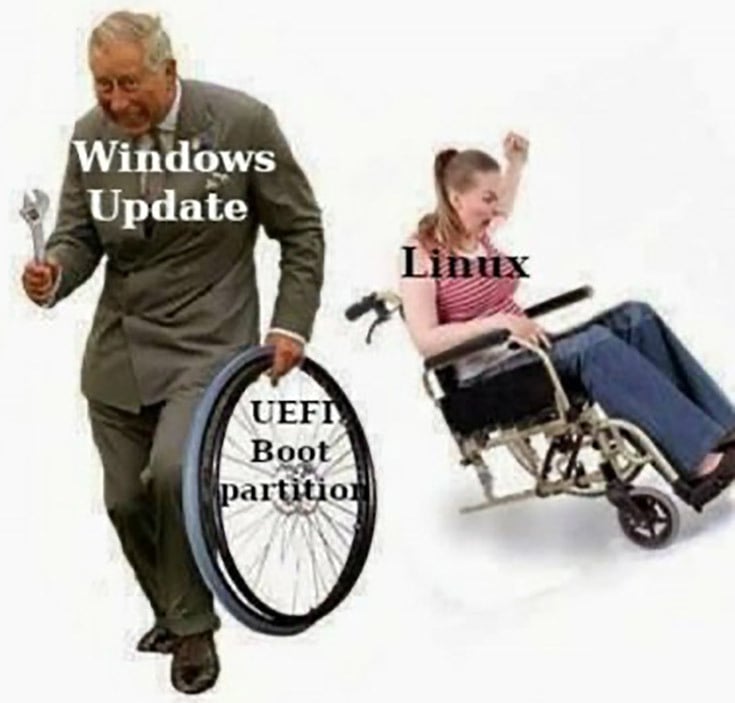this post was submitted on 24 Jan 2025
491 points (95.9% liked)
Actually Infuriating
594 readers
179 users here now
Community Rules:
Be Civil
Please treat others with decency. No bigotry (disparaging comments about any race, ethnicity, religion, gender, sexuality, nationality, ability, age, etc). Personal attacks and bad-faith argumentation are not allowed.
Content should be actually infuriating
Politics and news are allowed, as well as everyday life. However, please consider posting in partner communities below if it is a better fit.
Mark NSFW/NSFL posts
Please mark anything distressing (death, gore, etc.) as NSFW and clearly label it in the title.
Keep it Legal and Moral
No promoting violence, DOXXing, brigading, harassment, misinformation, spam, etc.
Partner Communities
- Mildly Infuriating
- Furiously Infuriating
- Memes
- Political Memes
- Lemmy Shitpost
- Not The Onion
- You Should Know
- Lemmy Be Wholesome
founded 3 months ago
MODERATORS
you are viewing a single comment's thread
view the rest of the comments
view the rest of the comments

Well I think there are Linux evangelists who won't accept that Linux might not fit everyone's needs and I despise that attitude. As an example, anyone who professionally works with documents all day knows that the most recommended Linux Office solution is absolutely inferior to the commercially available ones, and yet they push that hard and get really angry if someone begs to differ. There is a lot of ignorance towards the actual needs of users.
On the other hand, there are users who come from an ecosystem they are used to, and they find it hard to adjust to a new one and then blame the unfamiliar territory. I myself am a Linux user for over a decade, and whenever I have to fix something in a Windows system I'm astonished how difficult it actually is compared to what I'm used to. Everything is hidden deeply in seemingly random subsections of subsections of some weirdly named apps, the error codes are cryptic and the available documentation and support forums are borderline useless. In contrast, if I have a problem in Linux, even if I have no clue about the matter at hand, it's mostly trivial for me to find a solution online. But to an extent I have to blame myself for not being open to learn the Windows way of doing stuff (I'm stubborn and I have a short fuse when things are not working as intended)
What that boils down to essentially, for both the Linux evangelist and the average user who just wants to get shit done: if you're coming from one ecosystem and you try to assess the feasibility of another, don't expect things to work as you're used to, because then you're only projecting your own limitations.